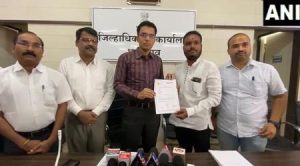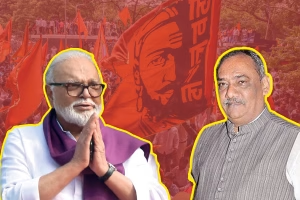Maharashtra’s controversial decision to grant Kunbi caste certificates to Marathas has sparked a significant legal battle in the Bombay High Court, with city-based lawyer Vinit Dhotre filing a public interest litigation challenging the state government’s September 2 resolution. This legal challenge threatens to unravel the government’s strategy to provide Other Backwards Class (OBC) reservations to the politically influential Maratha community through alternative constitutional pathways.
Also Read: Kunbi caste certificates to Marathas
Similar: Calls To Resign over Quota Opposition


Dhotre’s PIL presents multiple constitutional and legal arguments against the state’s decision to issue Kunbi caste certificates to Marathas. The primary contention centres on the violation of equality rights guaranteed under the Constitution, particularly affecting existing OBC communities, who could face diluted reservation benefits due to the inclusion of Marathas through this backdoor mechanism.
The petition specifically challenges the government’s legal competence under Article 342A of the Constitution, which deals with the identification and notification of Socially and Educationally Backwards Classes (SEBC). Article 342A empowers the President to identify backwards classes in each State and Union Territory and make lists of communities or groups for reservations and benefits, raising questions about whether state governments possess the authority to grant such certificates unilaterally.
The legal challenge draws heavily from the landmark Jaishri Patil vs Chief Minister, Maharashtra case of 2021, where the Supreme Court struck down Maharashtra’s Socially and Educationally Backwards Classes Act, 2018, which grants reservations to the Maratha community for violating the 50% limit on reservations and the 102nd Amendment of the Constitution. This precedent forms the cornerstone of arguments against the current government resolution granting Kunbi caste certificates to Marathas.
The Constitution (102nd Amendment) Act, 2018, significantly altered the landscape of reservation policies by introducing Article 342A and establishing the National Commission for Backwards Classes as a constitutional body. The Supreme Court held that Article 342, A by denuding SStates ‘ power to legislate or classify in respect of “any backwards class of citizens” does not affect the federal polity, yet the current challenge questions whether the state’s approach violates these constitutional provisions.
 The PIL raises serious concerns about the potential impact on over 260 castes and clans currently notified as OBCs in Maharashtra. The petitioner argues that granting Kunbi caste certificates to Marathas would significantly affect these communities, who are not adequately represented in mainstream government decisions and policies. This argument highlights the broader debate about reservation policies and their implementation in maintaining social justice while ensuring equitable representation.
The PIL raises serious concerns about the potential impact on over 260 castes and clans currently notified as OBCs in Maharashtra. The petitioner argues that granting Kunbi caste certificates to Marathas would significantly affect these communities, who are not adequately represented in mainstream government decisions and policies. This argument highlights the broader debate about reservation policies and their implementation in maintaining social justice while ensuring equitable representation.
Several petitions have been submitted to the Bombay High Court disputing Maharashtra’s decision to issue Kunbi caste certificates to Marathas for reservations, with claims that the decision is unlawful and politically driven, potentially diluting OBC reservations. This indicates a broader coalition of opposition beyond the current petitioner.
The legal challenge also addresses procedural violations under the Maharashtra Scheduled Castes, Scheduled Tribes, Denotified Tribes (Vimukta Jatis), Nomadic Tribes, Other Backwards Classes and Special Backwards Category (Regulation of Issuance and Verification of Caste Certificate Act, 2000. The petitioner contends that the government resolution granting Kunbi caste certificates to Marathas bypasses established procedures for certificate verification and issuance.
The Prakash Ambedkar-led Vanchit Bahujan Aghadi (VBA) has demanded that the Maharashtra government cancel all OBC Kunbi certificates given to Maratha applicants and revoke the ‘sage-soyre’ government resolution, indicating broader political opposition to the measure.
The Maratha reservation issue has been a persistent challenge in Maharashtra politics, with the Marathwada region emerging as the epicentre of the Maratha reservation movement due to economic hardship. The government’s strategy of issuing Kunbi caste certificates to Marathas represents an attempt to navigate constitutional constraints while addressing political pressures.
The Maharashtra government’s decision to grant Marathas access to Kunbi caste certificates for reservation benefits has sparked a legal battle led by the OBC Welfare Foundation, with concerns raised about fairness and policy changes. This legal resistance demonstrates the complex interplay between constitutional law, social justice, and political expediency.
The challenge to Kunbi caste certificates to Marathas raises fundamental questions about the distribution of powers between the central and state governments in matters of reservation policy. Article 342A states that the President can notify the list of SEBCs, and once notified by the President, only Parliament can add to or remove from it, creating uncertainty about state government authority in this domain.
 The 105th Constitution Amendment Act amends Article 342A to clarify the President’s power to specify socially and educationally backwards classes in the Central List for Central Government purposes, but questions remain about state-level implementation and the validity of measures like granting Kunbi caste certificates to Marathas.
The 105th Constitution Amendment Act amends Article 342A to clarify the President’s power to specify socially and educationally backwards classes in the Central List for Central Government purposes, but questions remain about state-level implementation and the validity of measures like granting Kunbi caste certificates to Marathas.
Advocate Rajesh Khobragade will present the PIL before the Bombay High Court, seeking directions to set aside the government notification allowing Kunbi caste certificates to Marathas. The court’s decision will have far-reaching implications for reservation policies not only in Maharashtra but potentially across India, as other states grapple with similar demands from dominant communities seeking reservation benefits.
The case also tests the boundaries of the 50% reservation limit established by the Indra Sawhney judgment of 1992, which held that merit is the rule and reservation is an exception, with total reservations in any state not exceeding 50%. The resolution granting Kunbi caste certificates to Marathas attempts to work within this framework while potentially expanding the effective scope of reservations.
The legal challenge to Kunbi caste certificates to Marathas represents a critical juncture in India’s reservation policy evolution. As the Bombay High Court prepares to hear arguments, the case will likely influence how states navigate constitutional constraints while addressing legitimate demands for social justice and political representation.
The ultimate resolution of this legal challenge will determine whether innovative administrative solutions can coexist with constitutional frameworks or whether fundamental changes to reservation policies require formal constitutional amendments rather than administrative workarounds. The decision will significantly impact Maharashtra’s political landscape and potentially influence reservation policies nationwide, making this case a watershed moment in contemporary Indian constitutional law.

